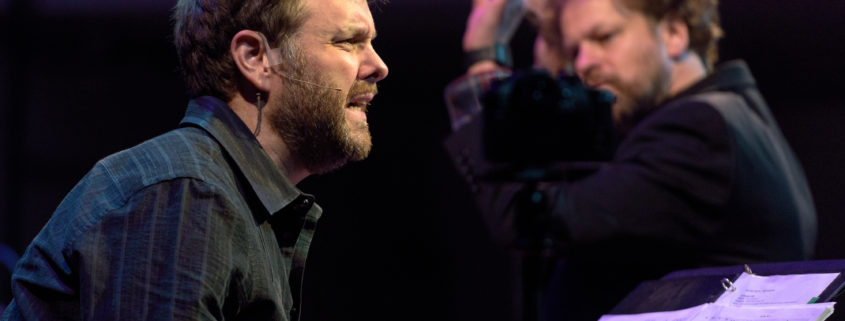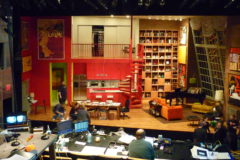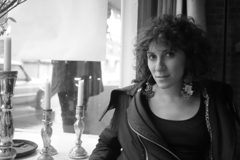Sharing Many Stories in One: An Interview with Matthew Welch
Matthew Welch is one of the co-founders of Experiments in Opera and excerpts from his opera And Here We Are will be featured on the upcoming Story Binge II at Merkin Concert Hall at Kaufman Music Center on December 15, 2016. We sat down with Matt to talk about his ideas and stories behind the work.
EiO: Can you give us a sense of what your opera, And Here We Are is about and where the title comes from?
MATTHEW WELCH: And Here We Are is an opera about a burgeoning opera singer who gets interned in a concentration camp in the Philippines during WWII. The title is a line from a Matthew Arnold poem called “Dover Beach”, and is a reference to the memoir that my great uncle, Edgar Kneedler, wrote of his time learning to become a musician and an opera singer in the Bay Area and also his time split between there and the Philippines. Most of this memoir consists of anecdotes, coping mechanisms so to speak, from his time in the Santa Thomas internment camp in Manila, Philippines in WWII.
EiO: So as a part of the evening program in Story Binge II, what part of the opera will we be seeing?
WELCH: At Story Binge II, we’ll be seeing a number of scenes that have been already explored in terms of Edgar Kneedler’s character, but the exciting part is that I’ll get to introduce a new character named Lieutenant Abiko. Abiko represents the complicated tyranny structure within the Santa Thomas internment camp. He was the primary disciplinarian at the camp so it’s the first time in the opera that we get to enter into the mind of an antagonistic character.
EiO: In your writing about the opera, you have talked about how stories can be therapeutic. What do you mean by that?
WELCH: I believe that telling stories about traumatic events is one of the main ways to use narrative as a form to cope with the complexities of the world. This can be found in so many cultures where archetypes are developed to represent particular human experiences or particular human emotions. And often, as is the case in this opera, we tend to mythologize our experiences as a way of connecting our particular actions and feelings with something that has meaning and is culturally relevant. This way, we can identify as one of many people that are going through a similar struggle.
EiO: In your opera you made a point to include multiple points of view. Why is this kind of story sharing meaningful to you?
WELCH: It’s important to know that this particular opera narrative culls from many sources. It primarily draws on Edgar Kneedler’s memoirs, but it also includes anecdotes from my great-grandmother’s and great-grandfather’s memoirs. They were Edgar’s parents, also in the Philippines, and they were among a number of people who survived this internment camp. The librettist, Daniel Neer, made a decision to center the narrative around my great-uncle Edgar Kneedler. But, since Daniel did quite the amount of research into other people’s anecdotes about the camp, he also included information from other internees’ memoirs and they all remembered things in different sequences, or with different emphasis. In a number of these other published books, Edgar Kneedler pops up quite a bit. So what Daniel was able to do was consolidate all of these into one quasi-fictive voice. We were able to tell a number of people’s stories through a single narrative.



